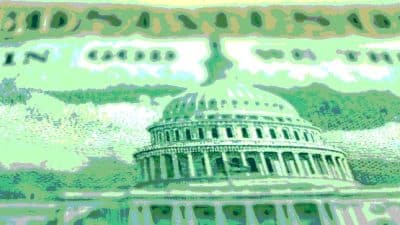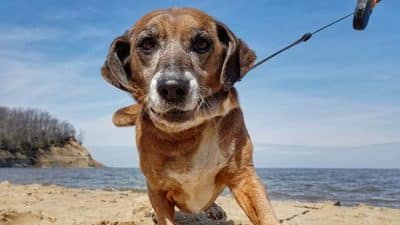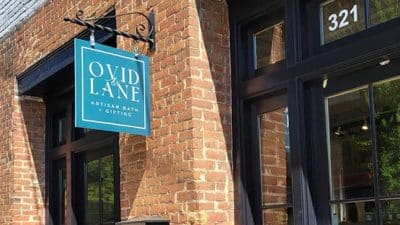
In 1966 the Virginia General Assembly established the Virginia Agricultural Council to provide financial assistance and support for agricultural research, education and services. Its purpose is to find new uses for agricultural products, to develop new markets for such products and to promote more efficient and economical methods of agricultural production.
Funding comes from assessments levied on certain agricultural supplies used by farmers, including lime, fertilizer, feed and motor fuel used for agricultural purposes. A special fund called the Seed Fund receives monies from an assessment on sale receipts from lawn and turf seed and must be used by the VAC for the exclusive funding of lawn and turf research. Seed Fund money and projects are separated from all of the other research projects. Monies received by the agency are transferred to the Virginia Agricultural Foundation Fund pursuant to 302§ 3.2-2905. The Council is also authorized to accept gifts and grants.
Funded projects focus on crops, livestock, insects, plant and animal diseases, turf grass, fertilizer and developing research test plots. Amounts range from just over $2,000 to nearly $25,000 per project. The Council accepts requests for financial assistance from any organized group within or serving Virginia’s industry of agriculture. This includes suppliers, farmers, marketers, Virginia Cooperative Extension centers, and colleges and universities. This year, all funded research is being conducted by one of Virginia’s two land grant universities, Virginia Tech or Virginia State University.
New research projects funded for 2016 include:
- Dr. Vitalis Temu Virginia State University Fesibility study on planting, field management and harvesting strategies for successful grain teff in southeast virginia – $18,534
- Dr. Alan D. Ealy Enhancing embryonic survival in cattle grazing endophyte-infected tall fescue– $7,000
- Mr. Matt Booher Summer stockpiling fescue for late-summer grazing – $2,039
- Dr. Mark J.Estienne Integrated research and extension education to enhance reproduction on small-scale and niche market pig farms in Virginia – $12,000
- Dr. Benjamin F. Tracy Solving orchardgrass persistence problems in Virginia: hay harvest management and crop heat stress – $9,400
- Mr. John Benner Reducing fescue pasture toxicity by frost seeding Bermudagrass, alfalfa or clovers –$4,888
- Dr. Carl A. Griffey Development of winter malt barley varieties for Virginia and neighboring states – $10,000
- Dr. Gregory M. Peck Integrated approaches for reducing synthetic fertilizer inputs in apple orchards– $21,683
- Dr. Kristy M. Daniels Enhancing rumen development and growth in dairy calves through the use of a megasphaera elsdenii probiotic supplement – $24,940
- Dr Thomas P. Kuhar Improving integrated pest management in Virginia cucurbit production –$14,954
- Dr. Holly L. Scoggins Growing for the future: building a research hop yard at Virginia Tech – $8,900
- Dr. Curt Laub Potential western corn rootworm resistance to Bt Corn in Virginia – $12,008
- Dr. Jim Owen Determining utilization and efficacy of best management practices for the Virginia nursery industry – $19,607
- Dr. Ramón A. Arancibia Feasibility of sweet potato production in Virginia to supply fresh and processing markets – $17,000
- Mr. Javier S. Garcia Evaluation of antimicrobial peptides expression in the gastrointestinal tract of Campylobacter-infected broiler chicks – $9,441
- Dr. Ken Hurley Composition and regional comparison of Virginia grown hops – $7,500
- Dr. Harbans L. Bhardwaj,Virginia State University Re-introduction of buckwheat (a multi-use crop) in Virginia – $20,000
Seed Fund monies (lawn and turf research) awarded to:
- Dr. Shawn D. Askew Characterizing herbicide-resistant annual bluegrass – $12,000
- Dr. Mike Goatley The heating characteristics of tall fescue/Kentucky Bluegrass and Bermudagrass sods as affected by harvest season, daily time of harvest, turf mowing height and soil moisture at harvest – $7,500
- Dr. Jeffrey Derr Selective control of perennial grassy weeds in tall fescue, seashore paspalum and Bermudagrass – $15,546
- Dr. Thomas P. Kuhar Efficacy of select insecticides on white grubs and earthworms – $10,217
The five projects that were funded for a second year included $8,020 for a study on phosphorus nutrient use efficiency in woody ornamental nursery crops; $20,000 to research renewable fuel sources for flue-cured tobacco curing barns; $2,500 to study susceptibility of new apple rootstocks to Tomato Ringspot Virus; $15,000 for the development of a novel vaccine for immune protection of dairy cows against Staphylococcus aureus infections; and $4,156 to develop an Animal Science Course to educate youth during residential programs at the Airfield 4-H Educational Center.
The VAC will call for new research proposals in the fall of 2015 for funding in 2017. For information on submitting a proposal, contact Don Ayers at 804.779.3742 or [email protected].










